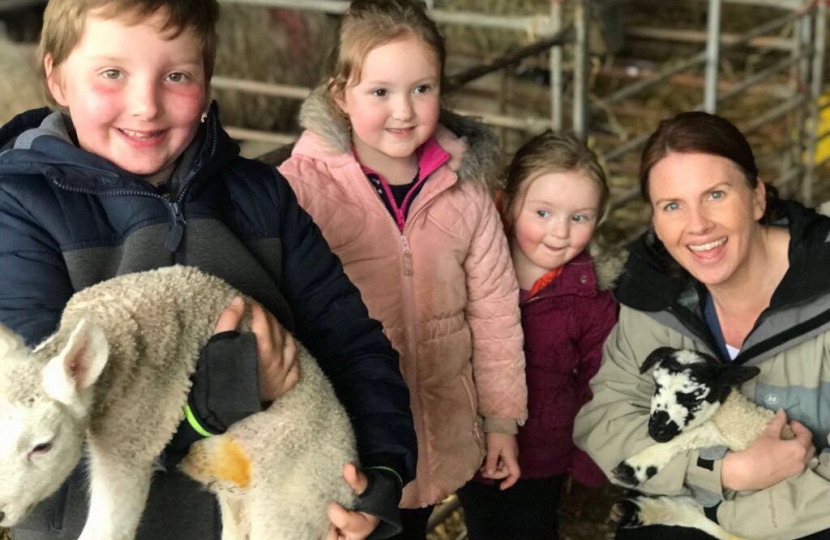
Spring is officially underway for Trudy Harrison after helping to deliver two lambs on a visit to a local farm.
On Saturday, Trudy visited Strudda Bank Farm in Calderbridge to meet with farmer, Kevin Holliday and his family and get stuck into some daily farmyard tasks.
The visit is part of Mrs Harrison’s, ‘Down on the Farm’ series, which sees her visit a different farm each month throughout the year in a bid to understand and better support the many different family farms in Copeland.
Mrs Harrison, said: “As we leave the EU, our farmers have a real opportunity to influence Britain’s agricultural policies and I want to ensure they work for Copeland and Cumbria. It’s only by getting down on the farm, and really understanding the daily challenges and the opportunities that I can do that well.
“I’m incredibly grateful to the farming families, like Kevin Holliday’s, who are welcoming me to their homes and livelihoods to hear things first hand”.
The day took an exciting turn when Mrs Harrison assisted in the delivery of two new lambs – which later took on the names of Teddy and Trudy.
Mrs Harrison also met with upland hill farmer, Will Rawlings at Hollins Farm in Ennerdale to hear views on the challenges ahead as the country transitions through Brexit.
Mrs Harrison, continued: “Listening to Will for just ten minutes fills me with pride about our farming industry, but he also, very effectively, tells me how it is, and how it could and should be better.
“Supporting the can do people in the community who know their area best is my absolute priority, it always has been and in the case of our farmers, it’s absolutely essential.”
The Government has recently launched a ten-week consultation on the future of agricultural policy in England, which will close on May 8th.
The consultation paper, ‘Health and Harmony: the future for food, farming and the environment in a Green Brexit’ can be found here: https://tinyurl.com/y9h94zrf.
Agriculture employs nearly 500,000 people and is a key part of the food and drink industry, contributing £112 billion to the UK economy.
It also accounts for over 70 per cent of land use in the UK.
Ministers have argued that leaving the EU presents the UK with an opportunity to change the way in which farmers are supported.

